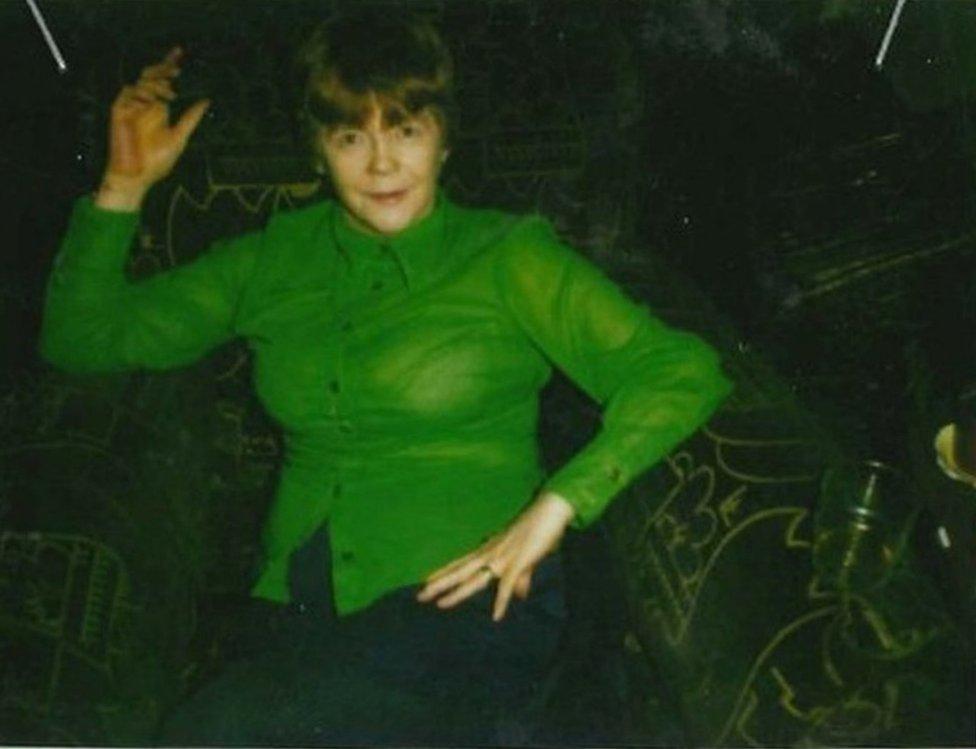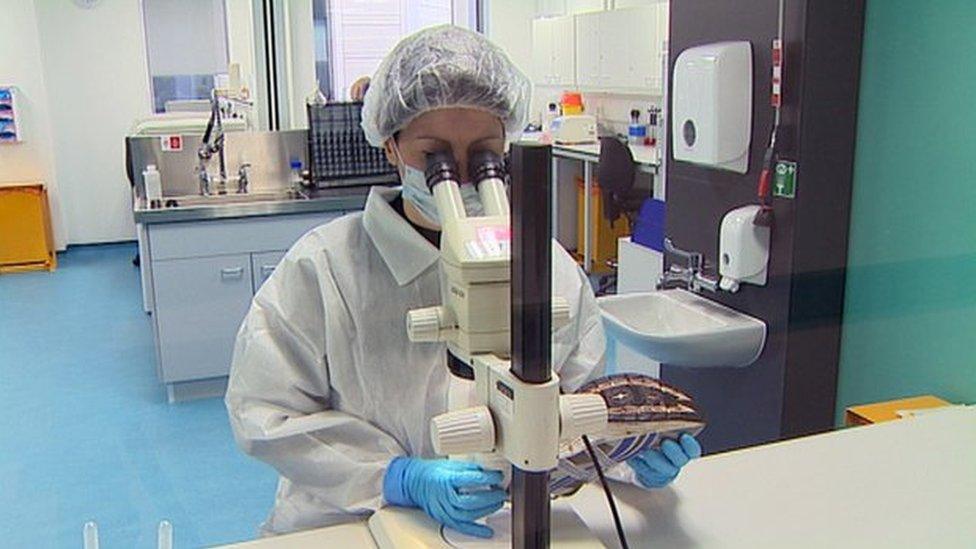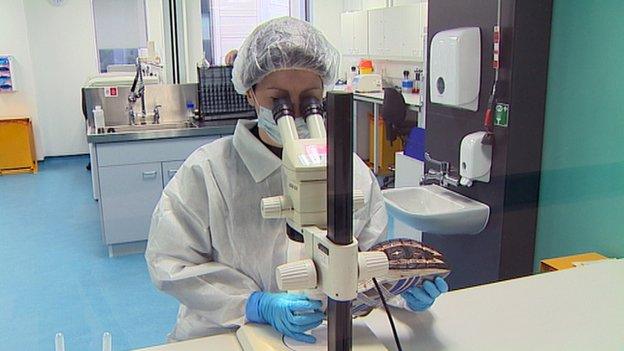'Forensics stop people getting away with murder'
- Published

Tom Nelson is stepping down the head of Scotland's forensic service
When Tom Nelson began his career in forensic science, they needed a blood stain the size of an old 50p coin to identify someone's blood type.
Forty years later, as he steps down as the head of Scotland's forensic service, they can get a full DNA profile from a sample too small to see.
His message to anyone who thinks they've got away with murder is simple. Science will catch up with you in the end.
Tom Nelson started work in his native Northern Ireland in 1980 where he investigated fires and explosions, before crossing over to Scotland in 1995.
In 2007, he became director of Scotland's first national forensic service, bringing together the country's forensic labs, crime scene examination and fingerprint service.
He retained the role when the forensic service became part of the Scottish Police Authority. It now employs 500 scientists and has a £36m annual budget.
The service remains in the public sector, has complete independence from Police Scotland and, according to others in the field, presents a favourable contrast to the fragmented set-up in England and Wales.
"My vision has always been crime scene to court," says Tom. "I wanted to bring everything together and I believe in Scotland we have the model that everyone aspires to."
The recent solving of a murder dating back to 1984 encapsulates how far the science has come.

Mary McLaughlin was found murdered in her flat in 1984. Her killer was convicted 35 years later because of DNA evidence
Mary McLaughlin, a mother of 11, was found murdered in her flat in Glasgow. A major police investigation failed to find her killer, and over the years a series of reviews drew a blank.
Evidence from the crime scene had been retained and in 2019, the forensic service re-examined the dressing gown cord the killer had used to strangle Mary. Later, in court, prosecutors described what they found as "a time capsule".
They untied one of the knots on the cord and, using a new profiling technique known as DNA 24, identified the genetic fingerprint of a convicted sex offender. In April this year, Graham McGill was found guilty of Mary's murder and jailed for life.
"When I started in 1980, we hadn't really heard of DNA," said Mr Nelson.
"Who would have dreamt 36 years ago when they were at that crime scene, that 36 years later DNA technology would solve that crime.
"I never would have dreamt it would go so far and to me that's what's so exciting about forensic science."
The field is not without controversy. Scotland has appointed its first biometrics commissioner to oversee the use and storage of data such as DNA samples and fingerprints. Tom Nelson won't be drawn on how long he would like DNA to be retained, saying it's for others to decide.
In 2011, he apologised in person to former police officer Shirley McKie, after a fingerprint found at a murder scene was wrongly identified as hers.
"I felt the only right thing to do at that time was to apologise on behalf of the whole service, and I did that personally to Shirley and her father."

Advances in DNA technology bring their own challenges. Finding DNA only indicates its presence, not how it got there.
"DNA will tell you that your DNA has been present at that particular scene or touching a particular item," says Mr Nelson.
"It does mean you are linked directly to that and as a scientist you begin to understand, how did the DNA get there, what was the potential explanation. That's when you look at the scenarios and come up with your conclusion."
As for what lies ahead, he says DNA techniques will identify the colour of someone's eyes and hair, and predicts with confidence that killers like Graham McGill will find it increasingly difficult to escape justice for so long.
"Providing it's kept in the most appropriate way, if the material is there I believe science will catch up and bring justice.
"Forty years ago I never dreamt of DNA coming in and bringing closure on so many of these cases and that will continue for the next 20, 30, 40 years.
"I wouldn't say it's going to become impossible to get away with a crime like murder in our lifetime, but I think science will always catch up with the individual."
Related topics
- Published2 February 2015
